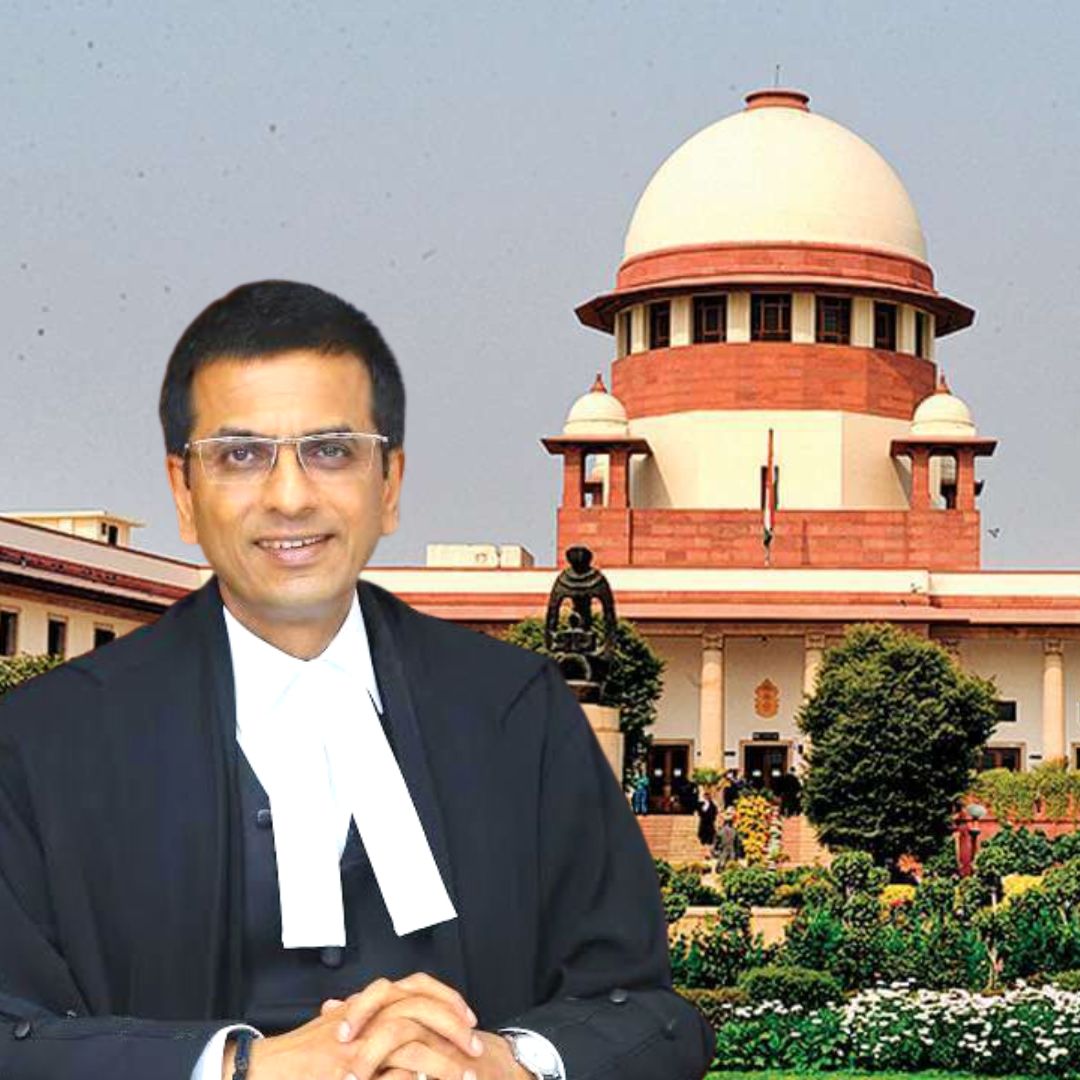Can Court Proceedings Be Recorded On Phone? No Big Deal, Says SC Judge Justice DY Chandrachud
Writer: Ananya Gondhi
She is a aspiring journalist who is committed to achieving her objective. She commits to ensure high productivity by thoughtful planning, effective management, and multitasking.
India, 8 Sep 2022 11:47 AM GMT
Editor : Shiva Chaudhary |
A post-graduate in Journalism and Mass Communication with relevant skills, specialising in content editing & writing. I believe in the precise dissemination of information based on facts to the public.
Creatives : Shiva Chaudhary
A post-graduate in Journalism and Mass Communication with relevant skills, specialising in content editing & writing. I believe in the precise dissemination of information based on facts to the public.
The SC bench was hearing a case about energy costs and the rights of auction bidders who buy defective or abandoned industrial equipment. It urged the attorneys to refer to the digitized soft copies of their compilations rather than their bulky volumes.
In a recent court proceeding, Supreme Court judge Justice DY Chandrachud witnessed someone taking a mobile phone video of a court proceeding in an open court hearing. He questioned, "how can he do so," but later realized it was not a big deal because nothing is private. In an appeal to attorneys to use technology,
Justice Chandrachud said, "Yesterday, I saw someone using a mobile phone, perhaps recording what we were saying during the proceedings. Initially, I thought, how can he record the proceedings? But then, my thought changed. What's the big deal in it? It's an open court hearing, and nothing is confidential here."
Promoting Use Of Technology In Court Proceedings
Justice Chandrachud, on the other side, suggested against recording the conversations between the judges. In November of this year, he will succeed the present Chief Justice of India and is also the SC's E-Committee chairman.
He was in charge of transforming the judicial system's apex court to trial court level processes into a virtual hybrid mode, allowing the system to function even while courts were closed for in-person hearings because of the COVID pandemic.
A bench led by Justice Chandrachud was hearing a case about energy costs and the rights of auction bidders who buy defective or abandoned industrial equipment. It urged the attorneys to refer to the digitized soft copies of their compilations rather than their bulky volumes.
The bench asserted that it has been providing attorneys with the duplicate scanned PDF files of the compilation that the judges have been utilizing to assist in efficient operation and use fewer papers. Senior attorney Vijay Hansaria claims that many trial courts and High Court justices prohibit using cell phones inside of courtrooms. Hansaria is representing one of the parties in the case.
Details Of The Training Session
Hansaria promised to ask the Supreme Court Bar Association's president to plan a training session for legal professionals on using technology and handling digital copies of judgments and compilations over the Dussehra holidays. In a speech on July 31 at the valedictory ceremony of the first, All India District Legal Service Authorities meet at Vigyan Bhawan in this city.
Justice Chandrachud warned that if the judicial system continues to resist utilizing modern communication tools to engage the public and gain their respect, it will "lose the game," reported NDTV.
He has claimed that the courts have been "reticent" to use contemporary communication techniques, such as social media platforms. He believed that judges and the judicial branch needed to "shed their anxiety," whether about using currently popular platforms like Twitter and Telegram or the live streaming of hearings.
According to Justice Chandrachud, there is a big world of responsibility. He believes that we can gain the community's trust if we accept and participate in the platforms that are so common in our culture. The legal system cannot be left behind if we are agents of change.
Also Read: Supreme Court Asks Uttar Pradesh Government To Consider Premature Release Of 512 Life Convicts
 All section
All section














